Middle East
Yemen’s Houthis say attacks on Israel not in US ceasefire deal in ‘any way’ | Houthis News
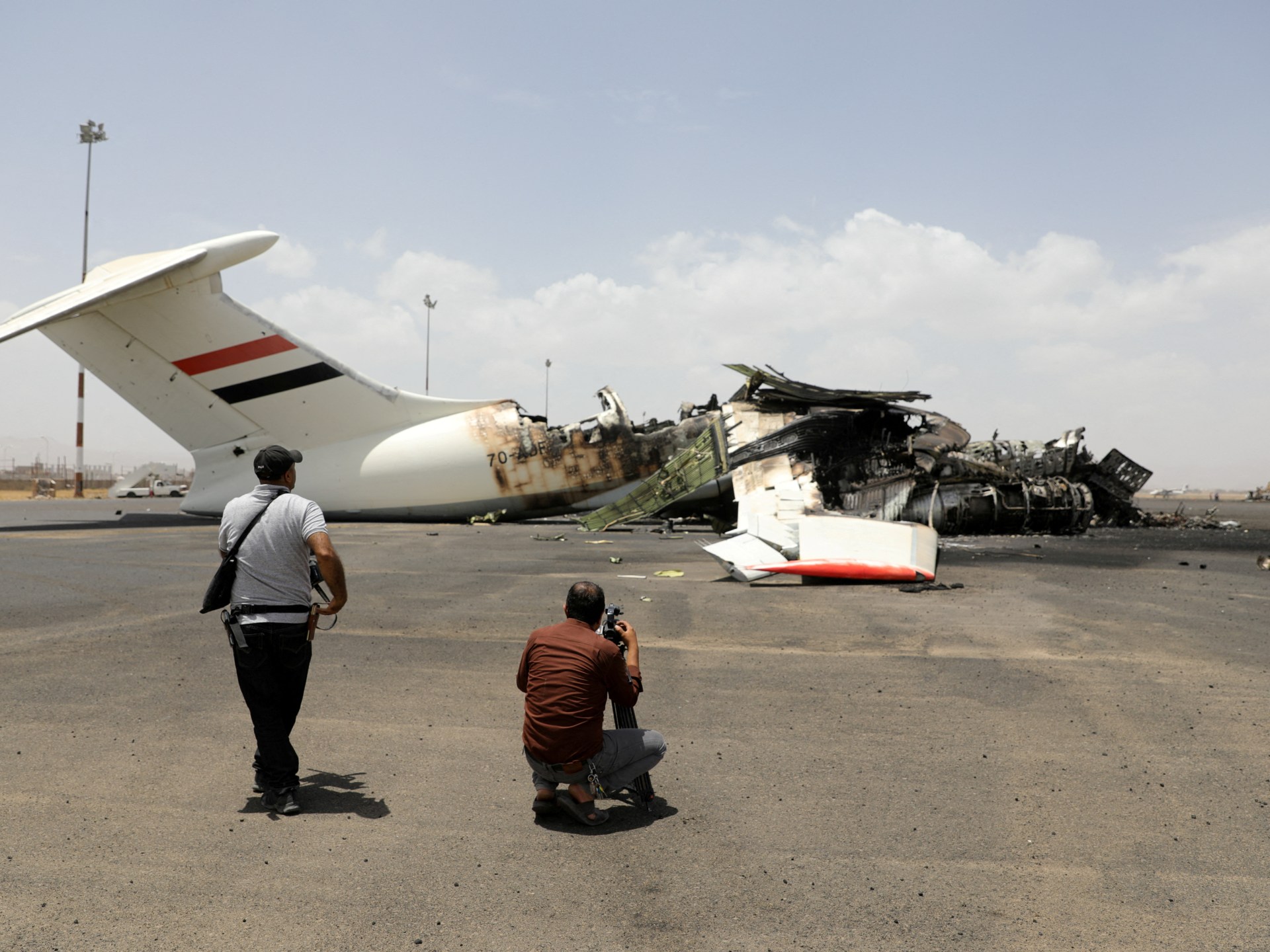
The US and Yemen’s Houthis agreed to an Oman-mediated deal to cease trading attacks after weeks of air strikes.
A ceasefire deal between Yemen’s Houthis and the United States does not include any operations against Israel, the group’s chief negotiator has announced.
Mohammed Abdulsalam told the Reuters news agency on Wednesday that attacking Israel was not included in “any way, shape or form” in the agreement mediated by Oman.
The announcement of the deal came hours after Israeli warplanes targeted Yemen’s Sanaa airport. Airport director Khaled al-Shaief told Al Masirah on Wednesday that “around $500 million in losses were caused by the Israeli aggression” on the airport.
The deal was announced a day earlier by US President Donald Trump, who said attacks on Yemen against the Houthis would stop, effective immediately, after the group agreed to stop targeting vessels in the Red Sea.
In a statement on Tuesday, Omani Foreign Minister Badr Albusaidi said that “following recent discussions and contacts … with the aim of de-escalation, efforts have resulted in a ceasefire agreement between the two sides”.
“Neither side will target the other … ensuring freedom of navigation and the smooth flow of international commercial shipping” in the Red Sea, he added.
Attacks on shipping
Since Israel began its war on Gaza in October 2023 following the Hamas attack on southern Israel, the Houthis have targeted Israel and vessels in the Red Sea in solidarity with Palestinians under fire.
During the fleeting ceasefire in Gaza earlier this year, the Houthis paused their attacks but restarted following Israel’s decision to enforce a total blockade on the enclave in early March, followed soon after by its full resumption of the war.
The group also threatened to restart attacks on shipping, which had been paused since January, which triggered a response from the US military in the form of near-daily air strikes.
But announcing the agreement on Tuesday, Trump said the Houthis “don’t want to fight any more”.
“And we will honour that, and we will stop the bombings, and they have capitulated,” he added.
“They say they will not be blowing up ships any more, and that’s… the purpose of what we were doing.”
But Abdulsalam told Houthi-affiliated news outlet Al Masirah TV that any US action would result in a response following the deal.
“If the American enemy resumes its attacks, we will resume our strikes,” he said.
“The real guarantee for the accord is the dark experience that the United States has had in Yemen,” he added.
Houthi political leader Mahdi al-Mashat also said attacks on Israel “will continue” and go “beyond what the Israeli enemy can withstand”.
A ballistic missile attack fired by the Houthis on Ben Gurion International Airport on Sunday hit the perimeter of the airport, injuring eight people, damaging a road and a vehicle and forcing air traffic to stop.
The Israeli military confirmed its defence system failed to shoot down the projectile, despite several attempts to intercept it, adding that an investigation was under way.
Middle East
Hamas says it will release US-Israeli captive Edan Alexander | Israel-Palestine conflict News
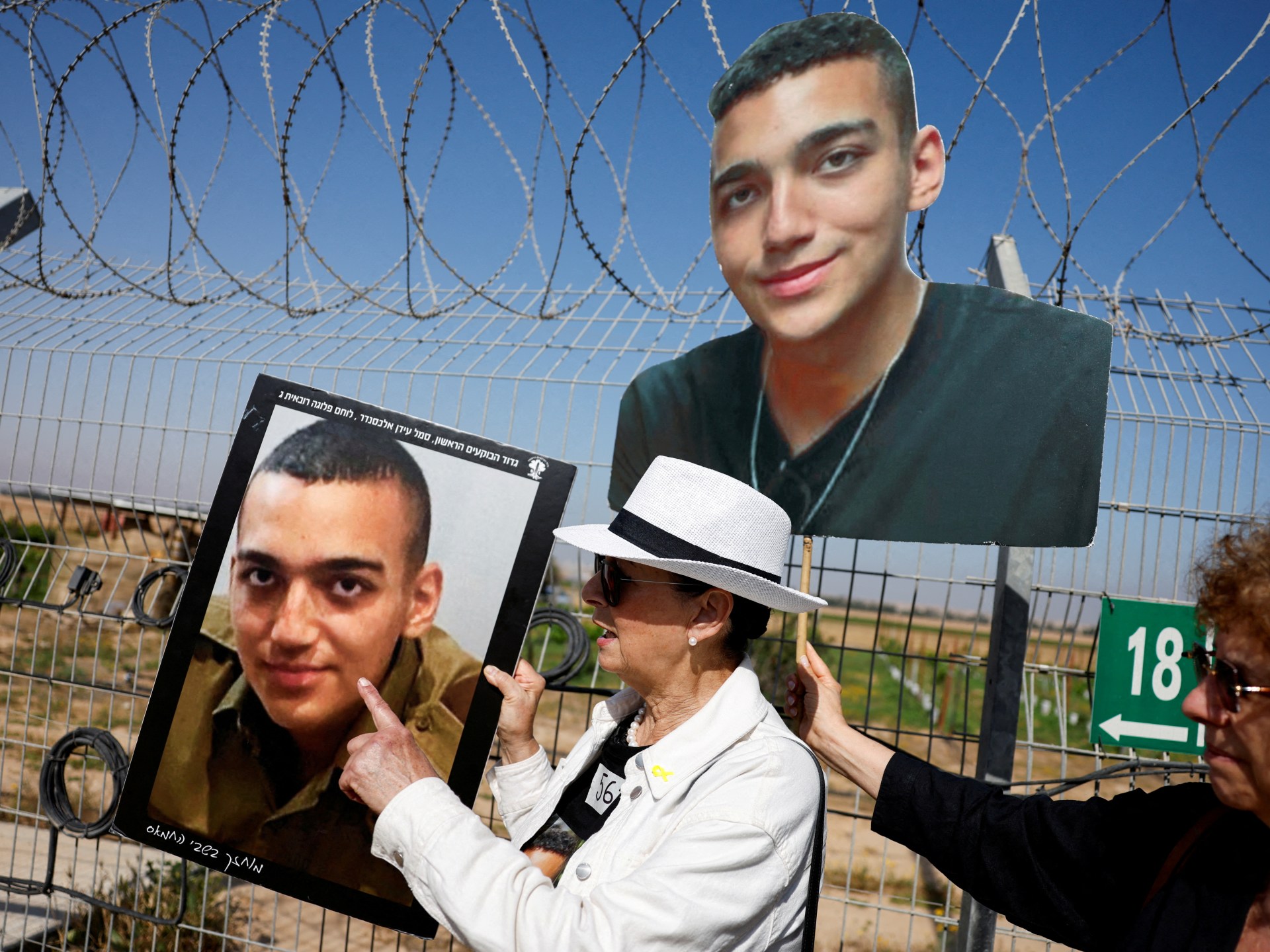
Hamas has said it will release a US-Israeli captive held in Gaza, as the group confirmed it was engaged in direct talks with the United States towards securing a ceasefire in the war-ravaged enclave and getting aid flowing again to a suffering Palestinian population.
The Palestinian group released a statement on Sunday: “Israeli soldier Edan Alexander, a dual US national, will be released as part of efforts towards a ceasefire” and the reopening of aid crossings. Israel has blocked all aid, including food, medicine and fuel, for 70 days.
The Hamas statement did not indicate when the 21-year-old Alexander would be released, but it is thought to be in the coming 48 hours.
Israeli media reported that US envoy Steve Witkoff will be in Israel on Monday as part of the deal.
The announcement comes shortly before US President Donald Trump’s visit to the Middle East this week – which does not include a trip to Israel. Trump and Witkoff have frequently mentioned Alexander by name in the past few months.
Alexander, who grew up in the US, was taken from his military base during the October 7, 2023 Hamas-led attack.
In its statement on Sunday, Hamas said it was willing to “immediately begin intensive negotiations” that could lead to an agreement to end the war and would see Gaza under a technocratic and independent administration.
“This will ensure calm and stability for many years, along with reconstruction and the end of the blockade,” the group said.
There was no immediate comment from the Trump administration.
Israeli Prime Minister Benjamin Netanyahu’s office said on Sunday that the US told Israel that Hamas’s freeing of Alexander would lead to negotiations for the release of more captives. The statement added that Israel’s policy hasn’t changed: negotiations will be conducted under fire with a continued commitment to achieving all war objectives.
‘A lot of questions’
Al Jazeera’s Hamdah Salhut, reporting from Amman, Jordan, said: “It’s unclear exactly what kind of reaction the Israeli government officials had with these direct talks between Hamas and the United States, but last time they were quite angry and that’s because the Israelis weren’t involved and had no knowledge of those talks and the Americans hit back by saying they didn’t need anyone’s permission to negotiate with any of the actors involved because they were American captives held in Gaza”.
“There are a lot of questions from a lot of different angles, specifically from the family members of those captives, from the larger part of Israeli society who have been protesting in the thousands for more than 1.5 years, accusing Benjamin Netanyahu of prolonging the war for his own personal and political gain. And in fact, Israeli officials have been saying the quiet part out loud in recent weeks, saying that the captives were not the main priority for the Israeli government and that they had other goals and objectives they needed to achieve”, she added.
“The family members of captives say that the Israeli government is choosing land grabs over the lives of Israelis who are still being held in Gaza”, she continued, referring to the Israeli government’s decision to expand its offensive in Gaza with a view to reoccupying parts of the territory.
Talks ongoing in Doha
Earlier on Sunday, two Hamas officials told the AFP news agency that talks were ongoing in the Qatari capital of Doha with the US and reported “progress” had been made.
One Hamas official, speaking about the talks with the US, said there was “progress made … notably on the entry of aid to the Gaza Strip” and the potential exchange of captives for Palestinian prisoners in Israeli custody.
A second official also reported progress “on the ceasefire in the Gaza Strip”.
Israel shattered the last ceasefire, which lasted two months, on March 18, launching a major offensive in Gaza and ramping up its bombardment of the territory.
It has also cut off all aid to Gaza since March 2, saying it would pressure Hamas to release the remaining captives. None have been released since the fleeting truce earlier this year, when several captives were exchanged for Palestinian prisoners.
A total of 59 captives are still in Gaza, around a third of them believed to be alive, after most of the rest were released in ceasefire agreements or other deals.
Starvation has taken hold across Gaza due to the Israeli blockade.
Earlier this month, the Israeli government approved plans to expand its offensive in the Gaza Strip, with officials talking of retaining a long-term occupying presence there.
The Health Ministry in Gaza said on Sunday that at least 2,720 people have been killed since Israel resumed its assault, bringing the overall Palestinian death toll since the war broke out to 52,829.
Middle East
Israel kills 13, including children, amid dire humanitarian crisis in Gaza | Israel-Palestine conflict News
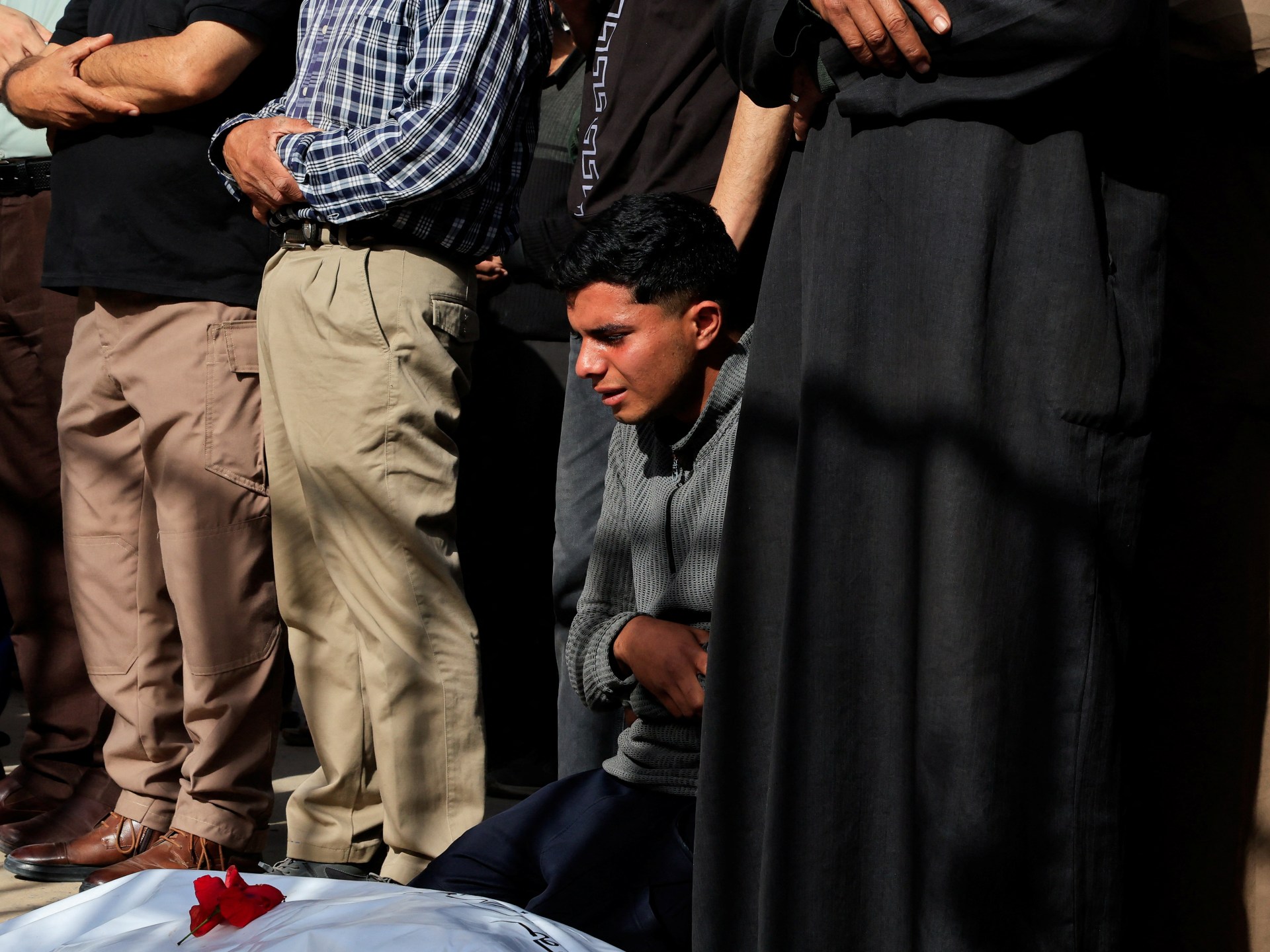
The Israeli military has killed at least 13 Palestinians, including several children and women, in Gaza as it continues to starve the besieged enclave.
Among the victims since dawn on Sunday were three Palestinians killed in a drone strike on a vehicle and two killed in a bombing near residential towers located west of Khan Younis in southern Gaza.
Another two people were killed in artillery shelling of a home in the Zeitoun neighbourhood of Gaza City in the north while the body of a man was recovered near the Bureij refugee camp in central Gaza after Israeli warplanes bombed the area a day earlier.
The Israeli military also attacked the Islamic University building in Khan Younis.
فيديو يوثق لحظة قصف الاحتلال الجامعة الإسلامية في منطقة معن شرقي خانيونس جنوبي قطاع غزة. pic.twitter.com/1G8rFhF7Ch
— شبكة قدس الإخبارية (@qudsn) May 11, 2025
The latest killings in the daily Israeli bombardment of Gaza came as the enclave has seen no food, water, medicine or fuel enter the territory for 70 days due to Israel’s blockade.
The 2.3 million residents of Gaza are surviving on fast-dwindling supplies and charity kitchens, which have been gradually forced to shut down as they run out of food and hunger spreads.
The United Nations agency for Palestinian refugees (UNRWA) warned on Sunday that the longer the blockade continues, the more irreversible harm is being done to Palestinians.
“UNRWA has thousands of trucks ready to enter and our teams in Gaza are ready to scale up the delivery,” the organisation said.
Hamas said in a statement on Sunday that Israel is committing a “complex crime”.
Israel’s security cabinet this month approved a plan to fully occupy the Gaza Strip and force another mass displacement of Palestinians.
Israel has also proposed taking over any future humanitarian aid distribution, which would, it said, involve creating designated military zones.
The Humanitarian Country Team, a forum that includes UN agencies, warned that the plan is dangerous and would “contravene fundamental humanitarian principles and appears designed to reinforce control over life-sustaining items as a pressure tactic – as part of a military strategy”.
Israeli Foreign Minister Gideon Saar said on Sunday that the country would accept a new US mechanism that would start delivering humanitarian aid to Gaza.
A group of American security contractors, former military officers and humanitarian aid officials is proposing to take over the distribution of food and other supplies in Gaza based on plans similar to those designed by Israel.
The plan has been criticised for bypassing the UN and aid groups with expertise in aid delivery and creating only four distribution points that would force a large number of Palestinians to travel to southern Gaza.
According to the latest figures by Gaza’s Ministry of Health on Sunday, at least 52,829 Palestinians have been confirmed killed and 119,554 wounded by Israeli military attacks since the Hamas-led October 7, 2023, attacks on southern Israel, which killed an estimated 1,139 people and resulted in more than 200 people taken captive into Gaza.
Pope Leo XIV called for an immediate ceasefire, entry of humanitarian aid and release of all those held in Gaza during his first Sunday blessing since his election as pontiff.
Israel to pay soldiers more before Gaza expansion
The Israeli military planned to intensify its ground occupation of Gaza on Sunday, pulling the Paratroopers Brigade back from its incursions into Syria to be redeployed to Gaza.
The paratroopers have been operating in the occupied Golan Heights and inside Syria since the fall of President Bashar al-Assad in December.
Israel withdrew the Nahal Brigade from the occupied West Bank – which has also been under assault for months – in its intended and self-proclaimed push to “conquer” Gaza.
But thousands of Israeli reservists and other members of the Israeli military and security agencies, along with thousands of Israelis demonstrating in the streets, have been calling for an end to the war to bring back all captives.
To address the growing dissatisfaction among soldiers, the Israeli government on Sunday approved a “comprehensive benefit plan” for reservists worth about 3 billion shekels ($838m) that is slated to include a series of economic and social benefits.
The army welcomed the plan approved by Prime Minister Benjamin Netanyahu, saying in a statement that it is a reflection of soldiers’ “exceptional contribution” to Israeli society.
This comes as United States President Donald Trump, who has reportedly had some differences with Netanyahu in recent weeks over the Gaza war and how to engage with Iran, will launch a tour of the Middle East this week.
Middle East
What the Christians of the Holy Land expect from Pope Leo XIV | Israel-Palestine conflict

Many Christians of the Holy Land rejoiced at the election of Pope Leo XIV as the successor to Saint Peter. Many of us hope that the new pope will follow the legacy of his predecessor, Pope Francis, particularly with regard to issues of justice and peace.
The Holy See has historically played an important role in supporting the Christian presence in the Holy Land, whether through church activities, engagement with influential parties in and around the region, or through material and moral support. This has been reflected in the establishment of institutions such as the Pontifical Mission in Jerusalem, Bethlehem University, the Benedictus Center in Nazareth, and most recently, the donation by Pope Francis of the Popemobile to serve as a mobile clinic for children in Gaza.
Some of the most impactful moments in our recent history have been papal visits to our land — starting with Pope Paul VI in 1964, followed by Pope John Paul II in 2000, Pope Benedict XVI in 2009, and concluding with Pope Francis in 2014.
We, Christians in the Holy Land, hope that Pope Leo XIV will not only come to visit us but also help address some of the challenges we face today in the birthplace of Christianity. As a community of 230,000 people, we are working to strengthen the Christian presence as an active component of the local society, in collaboration with its other components. However, we do need help.
One of the main issues affecting Christian lives in Israel and Palestine is the Israeli-Palestinian conflict. It is a persistent source of regional instability that fuels violence in various forms, which kills many, including Christians.
Rising religious and political extremism makes many of us feel like strangers in our own homeland. Economic deterioration and the declining number of people coming for pilgrimage in the Holy Land due to the conflict are leading to a loss of livelihood and worsening socioeconomic conditions. Widespread despair is driving many to emigrate or plan to leave in the near future, dwindling the numbers of our community.
Many local Christians want the Holy See to engage with key global and regional players to achieve a lasting solution to the Israeli-Palestinian conflict. In his last sermon, Pope Francis spoke about the urgent need for peace in Gaza. In his first sermon, Pope Leo XIV called for an immediate ceasefire and delivery of humanitarian aid to the Strip. We welcome these statements and hope he will continue to do his utmost to promote peace in the Holy Land.
In Palestine, the situation remains unclear due to the Israeli occupation of all territories meant to form a Palestinian state, the ongoing war in Gaza, and the limited authority of the Palestinian Authority in the West Bank — not to mention Israel’s full annexation of East Jerusalem. This reality calls for thoughtful action by the Church, both at the level of the Holy See and locally, to provide people with hope in these dark times.
In Israel, there is a pressing need for cooperation between the Holy See and the local church — bishops, priests, and believers — to resolve many issues that affect the Christian and non-Christian communities. It is crucial to work with all segments of the local society to pressure the state to treat all its citizens equally and preserve their dignity.
Christians hope that the Holy See can collaborate with us in our efforts to achieve equality. We, as a community, face Israeli laws that discriminate against us based on ethnicity and religion; we need support in our efforts to have such laws repealed.
It is also essential to work towards resolving painful issues that have negatively impacted the Christian presence, such as the case of the villages of Iqrit and Biram, whose Catholic Christian residents were expelled before their homes were destroyed by the Israeli authorities in 1951. Since then, the residents and their descendants have been demanding to return to their ancestral lands, but are being denied this right.
There is also a need for stronger intervention by the Holy See to support Christian institutions operating under Israeli control, which face growing challenges, such as attempts by some municipalities to impose heavy taxes in violation of past agreements, the clear discriminatory underfunding of Christian schools by Israeli authorities, and threats against church property.
Many Christians of the Holy Land also hope that Pope Leo XIV will work to enhance unity among them, including efforts to reach a unified date for major religious holidays, especially Christmas and Easter. They also call for increased joint efforts among churches to organise pilgrimages to the Holy Land that include not only visits to religious sites but also interactions with the faithful who live there. This is important because it would help us raise global awareness about the challenges we face and feel an integral part of the universal Church.
As a whole, Christians in the Holy Land, like their fellow Christians around the world, desire to see a father in Pope Leo XIV — a father who visits them and welcomes their visits, consults with them and listens to their concerns, protects them from harm, stands with them when they are attacked or oppressed, and follows in the footsteps of the Church’s founder, who never hesitated to defend the oppressed regardless of how powerful the oppressor might be.
Pope Leo XIV should know that he has many children in the Holy Land who love him and understand how busy he and the Holy See are with so many issues around the world.
In the Holy Land, Christians have prayed — and continue to pray — for his success in his mission, fully aware of how complex it is. But above all, the children need their father — and that is what they expect the most: that he will always stand by their side, despite how busy he might be.
The views expressed in this article are the author’s own and do not necessarily reflect Al Jazeera’s editorial stance.
-
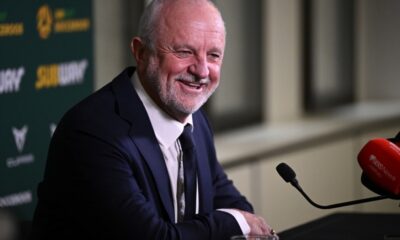
 Middle East2 days ago
Middle East2 days agoIraq look to former Australia coach Arnold to boost 2026 World Cup hopes | Football News
-
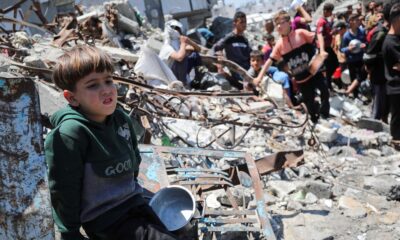
 Middle East1 day ago
Middle East1 day agoMy nephew asks if he will eat meat only in heaven. I struggle to answer | Israel-Palestine conflict
-

 Education1 day ago
Education1 day agoTrump’s dismantling of Education Department gives states ‘green light’ to pursue voucher programs
-
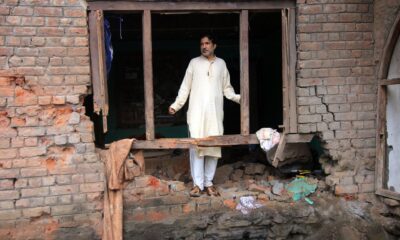
 Conflict Zones1 day ago
Conflict Zones1 day agoIndia and Pakistan agree ceasefire: What does it mean? | India-Pakistan Tensions News
-

 Conflict Zones2 days ago
Conflict Zones2 days agoPakistan launches Operation Bunyan Marsoos: What we know so far | India-Pakistan Tensions News
-

 Sports1 day ago
Sports1 day agoNikola Jokić arrives wearing Joker-inspired suit, helps Denver Nuggets to overtime playoff win over Oklahoma City Thunder
-
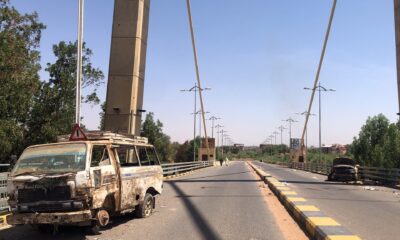
 Middle East1 day ago
Middle East1 day agoAt least 33 people killed in suspected RSF attacks in Sudan | Sudan war News
-
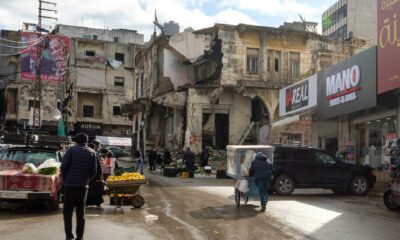
 Middle East2 days ago
Middle East2 days agoAfter Israel’s bombs, Nabatieh’s Monday Market revives itself once again | Israel attacks Lebanon




